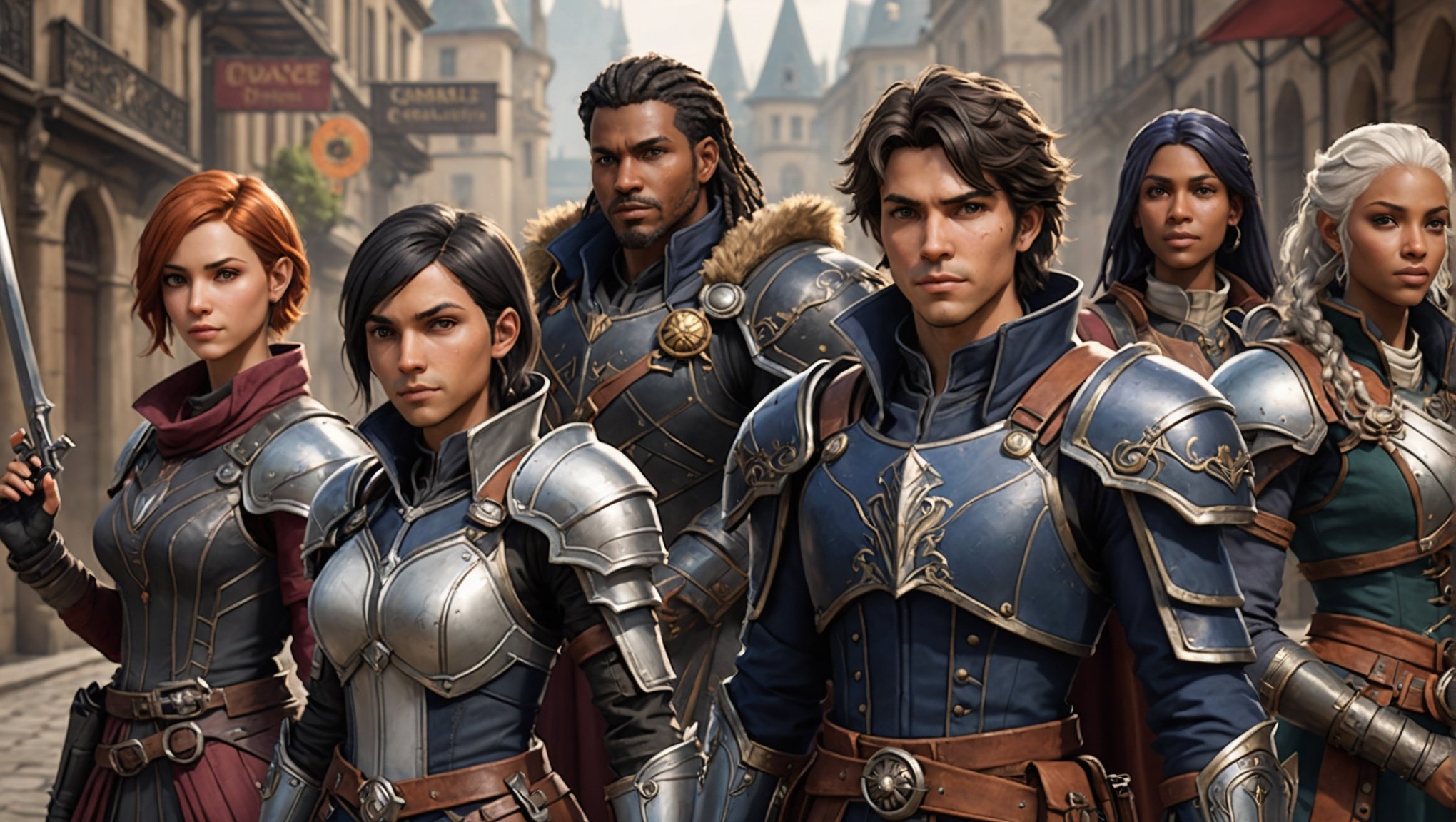Understanding AI-Driven Voice Synthesis in RPGs
In recent years, AI voice synthesis has revolutionised the world of RPGs, offering a new level of immersion for players. By generating synthetic voices, AI technology allows game developers to create a vast array of character voices without the need for numerous voice actors. This functionality is crucial in RPGs, where a wide variety of characters require unique voices.
Voice modulation is a key aspect of this technology, as it enables differentiation between characters. By altering pitch, tone, and speed, AI can produce distinct voice profiles, making each character sound unique and believable. This is particularly beneficial in RPGs, where character diversity is integral to the storyline and gameplay experience.
In parallel : Enhancing Realism in Historical Reenactment Games: The Role of AI in Character Interactions
With AI, developers can experiment with voice profiles, crafting diverse voices that reflect a character’s personality and background. For example, a wise old wizard and a young, eager hero can have clearly differentiated voices, enhancing the storytelling. The impact of this technology is substantial, allowing players to engage more deeply with the game world through realistic and varied character interactions.
The advancements in AI voice synthesis and modulation hold the promise of even more sophisticated and captivating RPG experiences in the future.
Additional reading : Unlocking the Power of AI: Crafting Tailored Stories in Interactive Fiction Games
Examples of Diverse Character Creation in RPGs
In the realm of RPG diversity, many games are praised for their successful implementation of varied and rich character design. One notable example is “Cyberpunk 2077”, praised for its inclusive gaming environment and extensive character creation options. Players can customise their character’s voice and appearance to reflect diverse identities, setting a benchmark for others to follow.
Another exemplary game is “The Witcher 3: Wild Hunt”, where character archetypes and voice profiles are crafted with depth, allowing players to engage with characters that exhibit complex, non-traditional roles. This attention to detail in character design fosters a more immersive gaming experience.
Case studies show that the inclusion of diverse voices in gaming has received positive community feedback. Fans of the “Mass Effect” series, for instance, applauded the game for offering a choice of protagonist with differing backgrounds and voices, which resonated well with the audience.
Community feedback often highlights the importance of authentic and diverse representation in character design. Gamers appreciate it when RPGs provide a spectrum of choices that reflect varied cultural, gender, and linguistic backgrounds, paving the way for a more inclusive and engaging gaming landscape.
Benefits of Using AI-Driven Voice Synthesis for Character Uniqueness
In the realm of gaming, character uniqueness significantly enhances the overall experience. AI-driven voice synthesis offers notable advantages in achieving this uniqueness. Through the creation of distinct voices, it plays a vital role in fostering a deeper player immersion by allowing players to connect more intimately with the characters they encounter.
The precise use of voice synthesis enables characters to have voices that match their personality and backstory, particularly enriching their development. Imagine a mysterious sorcerer possessing an eerie whisper or a jovial merchant with a hearty laugh — these nuances add layers to character backstories, making them more tangible and believable. These unique voices contribute immensely to enriched gaming experiences by setting characters apart in a crowded digital landscape.
Furthermore, memorable characters linger in players’ minds long after the game has ended. Unique voice patterns can engage players, drawing them into fictional worlds and enhancing their emotional connections. By crafting memorable experiences, developers harness voice synthesis as a powerful tool in storytelling. This nurtures not only engaged but also loyal gaming communities, eager to explore more narratives and bonds forged within these virtual adventures.
Tools and Software for AI Voice Synthesis
In the ever-evolving world of AI technology, the integration of voice synthesis software into RPG development is transforming the way characters are designed and brought to life. The progress in this sector now offers developers a range of tools that are both powerful and relatively easy to implement.
Several popular AI-driven voice synthesis tools include Amazon Polly, Google Cloud Text-to-Speech, and IBM Watson Text to Speech. These tools provide a variety of voice options and customization features, which are crucial in bringing unique character traits to life in RPG development.
To effectively integrate voice synthesis into RPGs, many creators look for comprehensive tutorials. These guides often cover step-by-step processes, from basic implementation to advanced customization techniques, ensuring that developers can maximize the capabilities of these tools.
When selecting voice synthesis software for RPG development, it’s essential to compare features such as language support, voice diversity, and ease of integration. For character creation, a versatile solution with various languages and accents can significantly enhance the player’s experience, adding depth and authenticity to the game world.
Choosing the right tools with expansive features and robust support can empower RPG developers to push the boundaries of character creation, enriching gaming experiences like never before.
Engaging the Community with Character Diversity
In the realm of RPG innovation, the role of community engagement in character design cannot be overstated. Players often possess unique insights into what makes characters resonate and feel authentic. Collecting player feedback is crucial to refining and enhancing character development that truly represents the audience’s diverse perspectives.
Several platforms facilitate this exchange of ideas, allowing fans to express their preferences and suggest innovative character concepts. Social media and dedicated gaming forums have become popular venues for these discussions, serving as conduits for player feedback and creative collaboration. Developers can integrate structured surveys and constructive dialogues, ensuring a broader range of player opinions reaches the design team.
Another forward-thinking strategy involves encouraging player-driven character creation initiatives. This can be achieved through contests or community challenges, where participants submit their character designs for consideration in future game updates or expansions. Such initiatives not only provide fresh perspectives but also foster a deeper connection between developers and their audience.
Additionally, sharing and showcasing diverse characters through regular updates or spotlight features can amplify interest and investment in the game. Developers should continuously refine their methods, adopting community feedback to sustain a dynamic and inclusive storytelling environment. By prioritising player input, RPGs can achieve greater authenticity and engagement, appealing to a wider player base.











